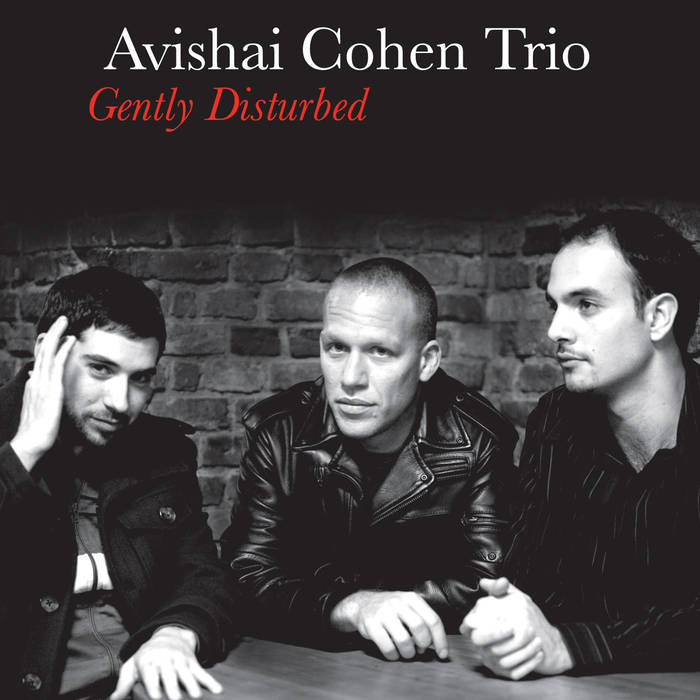Research
PhD thesis (2015—2019): Dispelling phantoms: An Australian bassist exploring assumptions of jazz practice
I have recently completed a hugely personally rewarding project that I’ve been working on for the past few years. The thesis is not currently available for public download — if you’re interested in finding out more, please contact me directly.
Abstract:
This PhD research explores ways of adapting to the reportedly common creative, financial, and psychological challenges facing jazz musicians developing and operating in the late 2010s, an era in which the context surrounding jazz music is rapidly evolving. Motivated by the problem of resolving my own creative inertia and personal wellbeing dysfunctions, born of grappling with these issues as an Australian freelance bassist, this study investigates the theory that often-unquestioned assumptions underpinning practice are sedimented socially and that those based on historic, hegemonic, or habitual practices may no longer be universally appropriate. In doing so, it contributes to a growing and necessary dialogue about the ‘why’ and ‘how’ of practice.
With the aim of restructuring a more personally productive, sustainable, and meaningful approach to musicking, the primary research question asks: How can revising the musical and extra-musical assumptions of my jazz practice improve its processes and facilitate the generation of new creative work? The idiosyncratic and multifaceted methodology developed to investigate this question is itself an essential component of the research and a useful addition to research in the field. To uncover and revise tacit assumptions, the employed practice-led research methodology combines a suite of methods familiar to jazz practice and borrowed from qualitative research traditions with iterative creative cycles and several additional complementary theoretical concepts. The linchpin of this research strategy is a series of ten semi-structured interviews with bassists of a similar demographic (Sam Anning, Alex Boneham, Tom Botting, Anna Butterss, Karl Dunnicliff, David Groves, Noel Mason, Linda May Han Oh, Adam Spiegl, and Georgia Weber), which illuminate characteristics of contemporary practice and have provoked widespread changes to my own approach.
The theorising and testing of revised strategies led to new personal clarity about the purpose and imperatives of practice, enriched my musical understanding, provided insight into factors influencing self-doubt, established a revised compositional framework, and ultimately facilitated the creation of the studio album Phantoms (Nick Abbey, 2019). Treating these developments as a case study, the research extends the particulars of my practice to present transferrable implications for other practitioners and identifies avenues for future research; for instance, it questions assumptions around ‘freelance jazz musicianship’ in the ‘precarious gig economy’ and highlights the importance of ‘self-efficacy’ as a theoretical construct for jazz musicians. The research’s overarching recommendations are that practice assumptions be routinely elucidated and assessed; practitioners and practitioner-researchers strive towards a more uplifting and pluralistic climate of practice; and contemporary, holistic, and socially minded research continues to increase in prevalence.
If you’d like to get more of a sense of it, I recently presented some elements of this project as part of a WAAPA Research Salon, which you can watch here (jump to around the 35-minute-mark).
Honours thesis (2011): Aspects of rhythm in the music and improvisation in six pieces by bassist Avishai Cohen
Back in 2011, I undertook Honours study through WAAPA. For my research project I investigated one of my heroes, bassist Avishai Cohen, checking out his rhythmic approach to composition and improvisation on selected trio tunes, including the tracks Pinzin Kinzin, Chutzpan, Seattle, The Ever Evolving Etude, and Structure in Emotion from the album Gently Disturbed, and Seven Seas (from the album of the same name). I discussed concepts like ‘parallel meters’ (the juxtaposition of two or more meters of the same temporal length with the same basic subdivision for deliberate exploitation by the soloists and accompanists—this term is distinct from typical cross-rhythms by being only applicable to rhythmic structures established by the composition), as well as 4/4 phrasing in 6/4, rubato-like phrasing, long and short meters, syncopation, cross-rhythms/short additive-meter phrases, rhythmic development of motifs, rhythmically repeated notes, expansion and contraction, and trading-based solo sections. As well as the analysis, the paper contains transcriptions of solos from the six tunes.
This thesis was a lot of fun to make and has been downloaded over 20,000 times!! Get it here!!!



